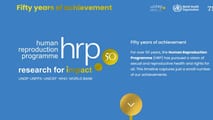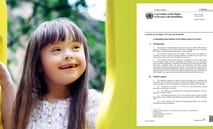While an important pressure is going on within the United Nations to impose the legalisation of eugenic abortion (see here) and hence “do everything to avoid handicaps” (see here), the ECLJ continues to be committed to supporting the right to life of disabled persons.
The United Nations’ Committee on the Rights of Persons with Disabilities is currently writing an interpretation, entitled “General Comment” of Article 5 of the Convention on the Rights of Persons with Disabilities (2006) regarding equality and non-discrimination.
The ECLJ just submitted its contribution, as an answer to the Committee’s call for submissions.
There are very good points in this draft Comment. The Committee, the majority of its 18 members being concerned by disability, hence condemns the forced sterilisations as well as mass euthanasia of disabled persons. It insists on the necessity to fight against stereotypes and stigmatisation of disabled persons, notably in the media where these persons are often presented as “as sufferers and dependent objects of care without autonomy”.[1] The Committee also denounces the antenatal screening policies which aim at eliminating unborn children bearing a disability. The Committee declares that these policies “go against the recognition of the equal worth of every person”.
In these declarations, the Committee implicitly recognises the status of person of the unborn children and their right to life without discrimination. However, it forgets to explicitly state the right to life of disabled persons, born or unborn, which should yet be protected against any discrimination based on their handicap. There are no references in the Draft to this right, while it is guaranteed by Article 10 of the very same Convention. Moreover, the Committee does not mention eugenic abortion which it yet recently condemned as a discriminatory measure in an official document submitted to the Human Rights Committee of the United Nations. It had then declared that “laws which explicitly allow for abortion on grounds of impairment violate the Convention on the Rights of Persons with Disabilities (Art. 4, 5, 8).” It further explained that these kind of abortion is often based on false diagnoses and that, “Even if it is not false, the assessment perpetuates notions of stereotyping disability as incompatible with a good life.”
The ECLJ, who rejoiced in such a positioning going in the sense of its numerous interventions before the Human Rights Council, reminds the Committee of the necessity to guarantee the right to life of disabled persons before as well as after birth.
In its contribution, the ECLJ reminds that dignity is inherent to every human being, regardless of his health condition and calls on the Committee to include the protection of the equal right to life of disabled persons. In that respect, the ECLJ requests the Committee to explicitly condemn eugenic abortion as well as neonatal infanticides which are the extend of the former. These practices are constituent of a discrimination based on the health condition of unborn children. The ECLJ hence underlines that antenatal screening policies and eugenic abortions are indistinguishable.
The ECLJ also recommends the Committee to condemn forced abortions practised on disabled persons and to invite States to prevent coerced abortions resulting from medical and social pressure on women pregnant with a disabled child.
Concerning the perception of disabled persons shown by the media, the ECLJ would like to draw the attention of the Committee on the application made by the Fondation Jérôme Lejeune and the ECLJ at the European Court of Human Rights against the decision of the French Conseil d’État, which had validated the censorship by the French Higher Audiovisual Council of the video “Dear Future Mom”. (read more here).
Finally, the ECLJ recommends the Committee asks the States to encourage research on disabilities rather than trying to eliminate those affected.
The ECLJ, attached to the respect of human dignity and life, will keep denouncing current eugenic abuses and to defend the right of disabled persons against any form of dehumanisation.
[1] 44. (…) States parties should undertake measures to encourage the media to portray persons with disabilities in a manner consistent with the purpose of the Convention and to combat harmful views of persons with disabilities, such as those that portray them as sufferers and dependent objects of care without autonomy.
Translation by BMG















